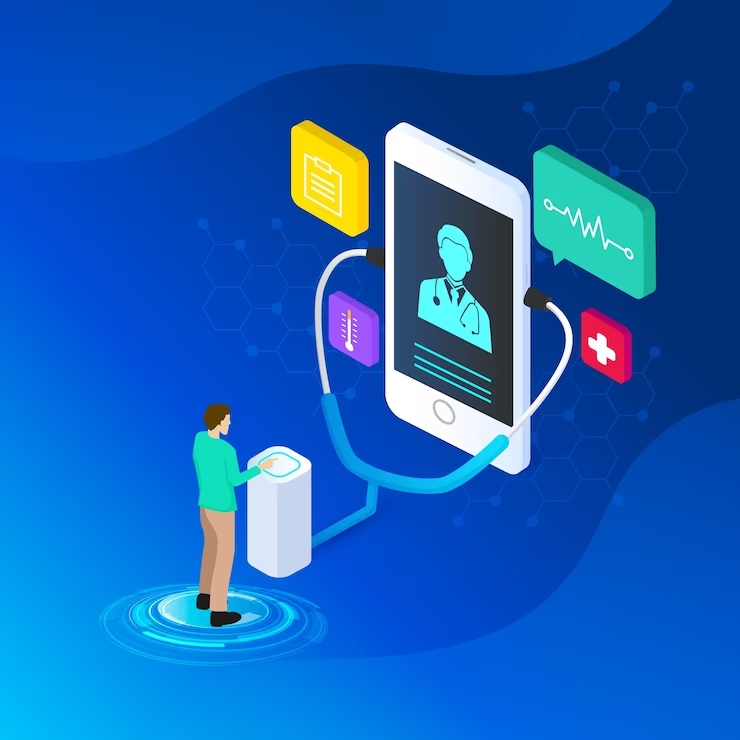As businesses continue to evolve and adapt, the need for efficiency has become more crucial than ever before. The DevOps approach has been a game-changer for many organizations, enabling them to streamline their processes and enhance their productivity. However, implementing DevOps may not be a straightforward process, and that’s where DevOps consulting services come in. In this article, we will delve into DevOps consulting services and explore the various benefits they can offer businesses.
Introduction to DevOps Consulting Services
DevOps consulting services are designed to help organizations implement the DevOps approach successfully. These services include a range of activities, such as assessing the organization’s current state, planning and designing DevOps processes, implementing DevOps tools, and providing ongoing support and maintenance.
What is DevOps, and why does it matter?
DevOps is a methodology that emphasizes collaboration between development and operations teams to improve software delivery speed and quality. This approach involves automating processes, breaking down silos, and fostering a culture of continuous improvement. DevOps has become increasingly popular over the years, as it offers several benefits to businesses.
Benefits of implementing DevOps in your business
DevOps is a software development approach that emphasizes collaboration and communication between development and operations teams to improve software releases’ speed, quality, and reliability. Implementing DevOps in a business can bring numerous benefits, including:
- Improved collaboration and communication: DevOps promotes a culture of collaboration and communication between development and operations teams, breaking down silos and encouraging cross-functional teamwork. This results in better alignment, faster decision-making, and more efficient and effective software delivery.
- Faster time-to-market: DevOps practices, such as continuous integration and delivery, automate many manual processes and make releasing software more quickly and frequently possible. This allows businesses to respond to market demands and customer needs more quickly, increasing their competitiveness and improving their bottom line.
- Increased reliability and stability: DevOps practices, such as continuous testing and monitoring, help to catch and resolve issues before they reach production, reducing the risk of downtime and data loss. This leads to a more stable and reliable software delivery process, improving user experience and increasing customer satisfaction.
- Improved efficiency and cost savings: DevOps automates many manual processes, reducing the time and resources required to deliver software. This increases efficiency and cost savings, allowing businesses to allocate resources to more strategic initiatives.
- Better quality software: DevOps emphasizes continuous testing and monitoring, which helps to catch and resolve issues before they reach production. This results in higher-quality software, leading to a better user experience and increased customer satisfaction.
- Greater scalability and flexibility: DevOps practices, such as infrastructure as code and containerization, make it easier to scale and adapt to changing business needs. This allows businesses to respond to market demands and customer needs more quickly, increasing their competitiveness and improving their bottom line.
The DevOps Toolchain: Understanding the key components
The DevOps toolchain is a set of tools and technologies used to implement the DevOps approach to software development. The key components of a DevOps toolchain are:
- Source Code Management (SCM) tools: These tools, such as Git, SVN, and Mercurial, manage the source code for a software project. They enable version control, collaboration, and the ability to track changes to the code over time.
- Continuous Integration (CI) tools: CI tools, such as Jenkins, Travis CI, and CircleCI, automate the process of building and testing software. They integrate with SCM tools and trigger a build and test process whenever code changes are committed to the repository.
- Configuration Management (CM) tools: CM tools, such as Puppet, Chef, and Ansible, automate the deployment and management of software and infrastructure. They ensure that all systems are configured consistently and that changes can be controlled and repeatable.
- Continuous Delivery (CD) tools: CD tools, such as Jenkins, Spinnaker, and GoCD, automate the release process and make it possible to deploy software quickly and frequently. They integrate with CI and CM tools to ensure that software can be delivered to production in a controlled and reliable manner.
- Monitoring and Logging tools: Monitoring and logging tools, such as Nagios, Logstash, and Kibana, provide real-time visibility into the performance and health of systems and applications. They enable DevOps teams to quickly identify and resolve issues, improving the reliability and stability of software delivery.
- Containerization tools: Containerization tools, such as Docker and Kubernetes, provide a way to package and deploy applications and their dependencies in a lightweight and portable manner. They make it easier to deploy and manage software, improving the scalability and flexibility of the software delivery process.
- Collaboration and Communication Tools: Collaboration and communication tools, such as Slack, Microsoft Teams, and Jira, facilitate communication and collaboration between development and operations teams. They make it easier to share information, coordinate efforts, and resolve issues, improving the speed and efficiency of software delivery.
Choosing the Right DevOps Consulting Services for your business
Choosing the right DevOps consulting services for your business can be daunting. It’s essential to consider factors such as expertise, experience, and reputation when selecting a consulting service. It’s also important to assess your organization’s specific needs and ensure that the consulting service can provide customized solutions.
The DevOps Consulting Process: Assessing, Planning, and Implementing
The DevOps consulting process typically involves three stages:
- Assessing the current state of the organization
- Planning and designing DevOps processes
- Implementing DevOps tools and technologies
Each stage is critical and requires a thorough understanding of the organization’s needs and objectives.
DevOps Consulting Services vs. In-house DevOps: Pros and Cons
Organizations can choose to implement DevOps in-house or opt for DevOps consulting services. Both options have pros and cons, and it’s essential to understand them before deciding. In-house DevOps allows for greater control and customization, while DevOps consulting services provide expertise and experience.
Measuring the Impact of DevOps Consulting Services
Measuring the impact of DevOps consulting services is essential to determine their effectiveness. Metrics such as time-to-market, software quality, and productivity can help assess the impact of DevOps on the organization. It’s also important to continually monitor the DevOps process’s overall success.
Common challenges faced during DevOps implementation and how DevOps Consulting Services can help
DevOps implementation can be challenging, and organizations may face several obstacles. These include cultural resistance, lack of expertise, and inadequate resources. DevOps consulting services can help organizations overcome these challenges by providing guidance, support, and expertise.
Case studies: Real-life examples of successful DevOps implementations
Real-life examples of successful DevOps implementations can help organizations understand the benefits and potential of DevOps. Case studies such as Amazon, Netflix, and Etsy demonstrate how DevOps can transform businesses and drive innovation.
Conclusion: Why Investing in DevOps Consulting Services is a Game-changer for your business
In conclusion, DevOps consulting services can play a vital role in enhancing the efficiency of businesses. These services can help organizations successfully implement the DevOps approach and reap its numerous benefits by providing expertise, guidance, and support. Investing in DevOps consulting services can be a game-changer for businesses looking to streamline their processes and improve their productivity.
CTA
If you want to implement DevOps in your organization, consider investing in DevOps consulting services. Contact us today to learn more about how we can help you enhance your efficiency and productivity.
Desc: Boost business efficiency with DevOps consulting services. Learn the crucial role of DevOps for improved operations and increased productivity. Implement best practices with expert help.





